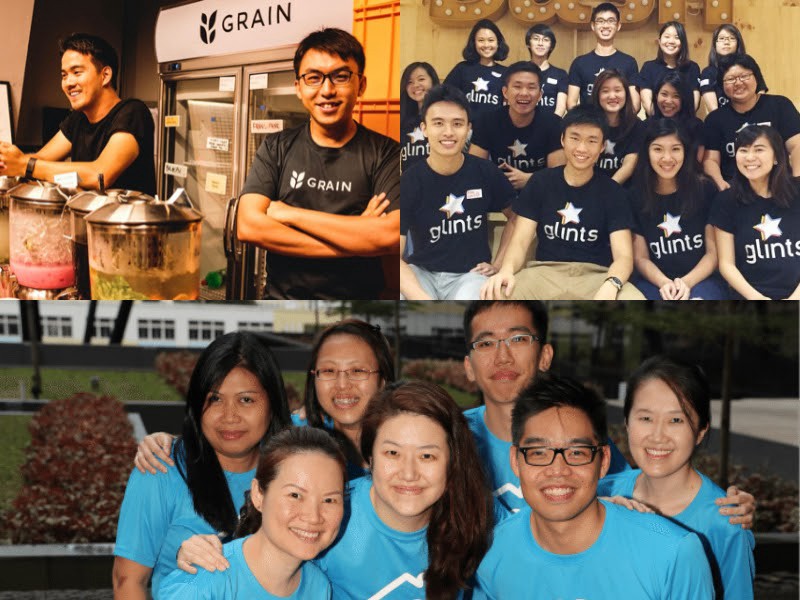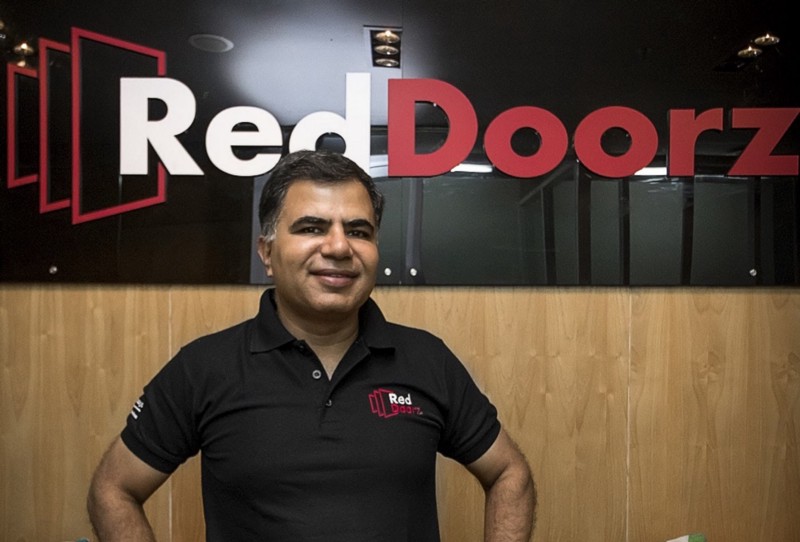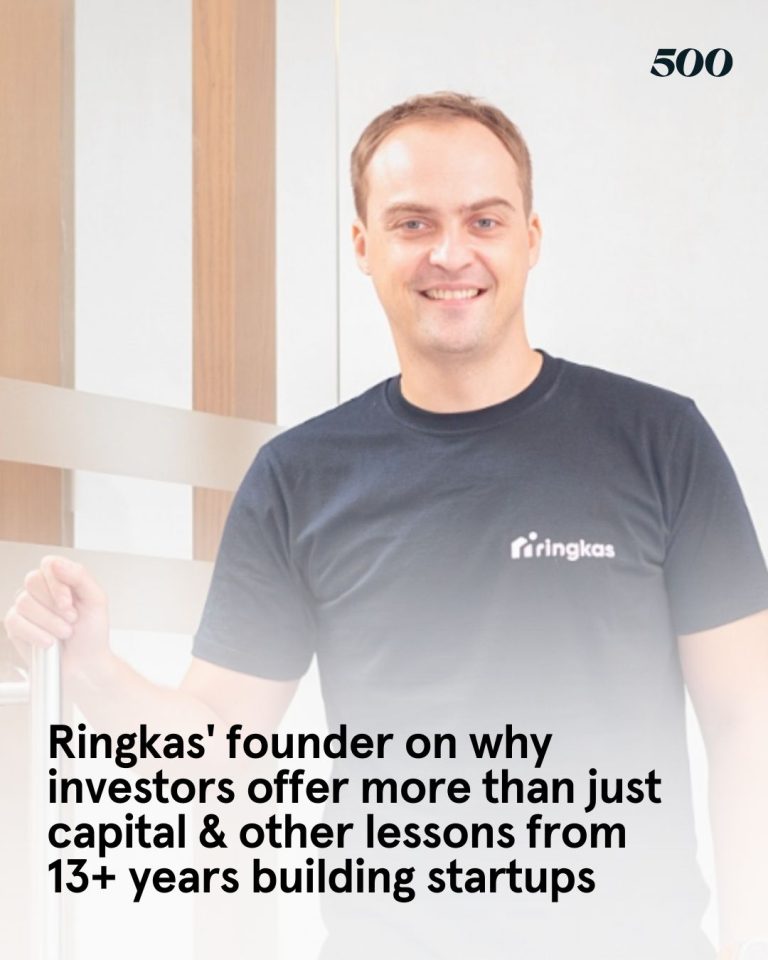
Standing strong
- LinkedIn has unveiled its inaugural list of top startups in Singapore. These companies were chosen for remaining resilient during the Covid-19 crisis.
- The list is based on data from January to July 2020. LinkedIn measured startups based on four pillars: employment growth, engagement, job interest and attraction of top talent.
- Within the cohort, there are three 500-backed companies, namely: Grain, Glints, and Homage.

- Having recently expanded to Thailand, Grain functions as an online food delivery platform with its own selection of culinary favorites. An in-house team whips out rotating menus from cloud kitchens across Singapore. It raised US$10 million last year in a seed round.
- Glints is a staffing and recruitment platform that secured US$6.8 million in a Series B round last year for expansion plans in Vietnam and Hong Kong. Beyond talent sourcing, Glints also upskills the working class through online classes and career training.
- Operating in Singapore and Malaysia, Homage is reinventing elderly care through its app that matches seniors with more than 1,000 professional caregivers and nurses. In June, Homage launched Homage Health, a service providing telehealth consultations and medicine delivery for those at greater risk of contracting Covid-19 during the pandemic.
- Check out the full list on LinkedIn here.
Navigating rough waters
- Amit Saberwal, founder and CEO of 500-backed RedDoorz revealed in a KrAsia interview that the Covid-19 pandemic has been “one of the most difficult times in my career”.
- The pandemic has upended the tourism and hospitality industries, as countries shuttered their borders and put air travel on tight restrictions. Amit and his team had to make adjustments — quickly. Employees were furloughed or let go while expansion plans were scrapped.
- “In February, when the first signs of trouble appeared, we scrapped plans to launch in Thailand, furloughed or let go of some of our employees, and reduced costs aggressively, including cuts in senior management pay, followed by company-wide salary reductions,” Amit said.

- The company also adjusted its commercial agreements with hotels, making it more flexible under a profit-sharing model. The method is working well as more hotels are actually coming onboard, according to Amit.
- As RedDoorz steadied their course through rough waters, things started looking up. Programs like the HygienePass and Red Heroes have been well-received by partners and the public alike.
- Amit is positive that with the easing of local lockdown measures, occupancy rates among RedDoorz properties will increase.
- “We believe domestic travel will see a big surge in our region in the future — this will be the first travel vertical to pick up before large-scale international travel can resume. The recovery has already started to happen in cities like Jakarta and Bandung, which are big domestic destinations for us,” Amit said.
- As for Amit’s personal learnings, the pandemic has taught him to be agile and resilient in times of unprecedented uncertainty.
- “That being said, the biggest lesson I’ve learned throughout this crisis was how to further hone and develop my ability to adapt and to remain fully focused on execution. These have been one of the few most important elements, which has allowed me to not only scale the business, but also to establish strong fundamentals,” Amit said.
- Read Amit’s interview with KrAsia in full here.
Be anti-fragile
- Don’t just be tough, also be “anti-fragile”.
- That’s what Wai Hong Foong, co-founder and chieftain of 500-backed StoreHub, wrote in his latest blogpost.
- But what exactly does it mean to be anti-fragile?
- Wai Hong explained the concept, first introduced by author Nassim Taleb.
- “Antifragility is beyond resilience or robustness. The resilient resists shocks and stays the same; the antifragile gets better.”

- To further decode this concept, Wai Hong puts it forward with a local spin using roti canai (Indian flatbread) as an example.
- “A piece of roti-canai dough is pounded on over and over and over again. With each knead, and pound the dough gets better and better. Finally it’s flipped and stretched out, over and over again as thinly as possible until you’re left with the lightest, tastiest dish that’s a favourite amongst Malaysians.”
- Conclusions: Be like roti canai.
- You can read Wai Hong’s thoughts here.
- Attention, founders! If you would love us to feature your writings and musings in the next Daily Markup, please get in touch.
Missed out the last Daily Markup? Go here to check it out.
You can also find us on LinkedIn, Facebook, Twitter, and Instagram.

500 Startups is a venture capital firm on a mission to discover and back the world’s most talented entrepreneurs, help them create successful companies at scale, and build thriving global ecosystems. In Southeast Asia, 500 Startups invests through the pioneering 500 Southeast Asia family of funds. The 500 Southeast Asia funds have backed over 240 companies across multiple sectors from internet to consumer to deep technology. It continues to connect founders with capital, expertise and powerful regional and global networks to help them succeed.
This post is intended solely for general informational or educational purposes only. 500 Startups Management Company, L.L.C. and its affiliates (collectively “500 Startups”) makes no representation as to the accuracy or information in this post and while reasonable steps have been taken to ensure that the information herein is accurate and up-to-date, no liability can be accepted for any error or omissions. All third party links in this post have not been independently verified by 500 Startups and the inclusion of such links should not be interpreted as an endorsement or confirmation of the content within. Information about portfolio companies’ markets, competitors, performance, and fundraising has been provided by those companies’ founders and has not been independently verified. Under no circumstances should any content in this post be construed as investment, legal, tax or accounting advice by 500 Startups, or an offer to provide any investment advisory service with regard to securities by 500 Startups. No content or information in this post should be construed as an offer to sell or solicitation of interest to purchase any securities advised by 500 Startups. Prospective investors considering an investment into any 500 Startups fund should not consider or construe this content as fund marketing material. The views expressed herein are as at the date of this post and are subject to change without notice. One or more 500 Startups fund may have a financial interest in one or more of the companies discussed.




